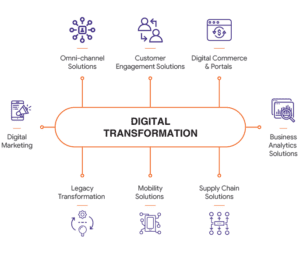Things you need to know before opting for a banking program
When it comes to banking and finance, a lot of things go into the process. If you’re looking to get into banking or finance, it’s important that you have a solid understanding of what banking means and what goes into the banking process. That’s why we’ve put together this informative post so that you will get an overview of what the banking program is all about and the things you need to know before opting for one.
Overview of the Banking program
Banking programs are basically designed to train individuals in banking and finance so that they can be better handled when it comes to handling banking transactions. These programs will typically cover topics such as accounting, financial analysis, and investment banking.
If we talk about the types of banking programs, then there are two types of banking programs: online and offline.
With an offline program, you’ll attend classes at a physical location. This is the traditional way of learning banking and finance.
Online banking programs, on the other hand, are becoming more popular these days. You can learn banking and finance online at your own pace and in your own time. There are many different types of online banking programs available, but they all have one goal: to help you become a better banker.
However, before you choose to enroll in a banking program, there are a few things you should know. So, let’s take a look.
Things you need to know:
- The banking program you choose should be accredited by a reputable organization: Yes, it’s a priority that the banking program you choose is accredited by a reputable organization. There are many banking programs out there that are not accredited. These programs may not provide you with the quality education you need to be a successful banker.
- Cost of the banking program: The cost of the banking program is a paramount factor to consider. Some programs may be more expensive. But keep in mind you get what you pay for.
- Duration of the banking program: The duration of the banking program is also a crucial factor to consider. Some banking programs last a few weeks, while others may last several months. So, choose a program that fits your schedule and needs.
- Instructor-led or self-paced: Banking programs can be either instructor-led or self-paced. If you’re someone who loves to learn at your own pace, then a self-paced program may be a good option for you. But if you prefer a more structured learning environment, then an instructor-led program may be a better choice.
Discover Banking course with Imarticus Learning.

Through this banking and finance online training, learners will gain technical and soft skills that are necessary for a successful career in retail banking—and in NBFCs or fintech.
Course Benefits For Learners:
- Many students who were placed in entry-level positions with reputable banks, NBFCs, FinTech companies, and other organizations have seen their pay increase by over 60%.
- The postgraduate program in finance covers the following topics: introduction to Banking and Finance, Financial Management, banking operations, and credit analysis, consumer financial services, commercial banking & asset management.
- Students will receive a corporate banking Certification course, which can improve their resumes and help them advance in their banking and finance careers.
Visit our training centers in Mumbai, Thane, Pune, Chennai, Bengaluru, Delhi, Gurgaon, or Ahmedabad, or get in touch with us via the chat support system.









 A model is thus a mathematical, simplified, and idealized version of the reality of a company. The model works out simple versions of real factors and translates them into spreadsheets that facilitate the execution of mathematical calculations on the data.
A model is thus a mathematical, simplified, and idealized version of the reality of a company. The model works out simple versions of real factors and translates them into spreadsheets that facilitate the execution of mathematical calculations on the data.
 The effect of digital transformation on banks can also be seen in the recruitment process. Applicants with an
The effect of digital transformation on banks can also be seen in the recruitment process. Applicants with an 

 Credit Risk Analysis is primarily a number-crunching job that needs a strong foundation in finance. If you’re keen to pursue a Credit Analyst Course, you should have a Bachelor’s Degree in finance, accounting, or other related fields such as ratio analysis, statistics, economics, calculus, financial statement analysis, and risk assessment.
Credit Risk Analysis is primarily a number-crunching job that needs a strong foundation in finance. If you’re keen to pursue a Credit Analyst Course, you should have a Bachelor’s Degree in finance, accounting, or other related fields such as ratio analysis, statistics, economics, calculus, financial statement analysis, and risk assessment.